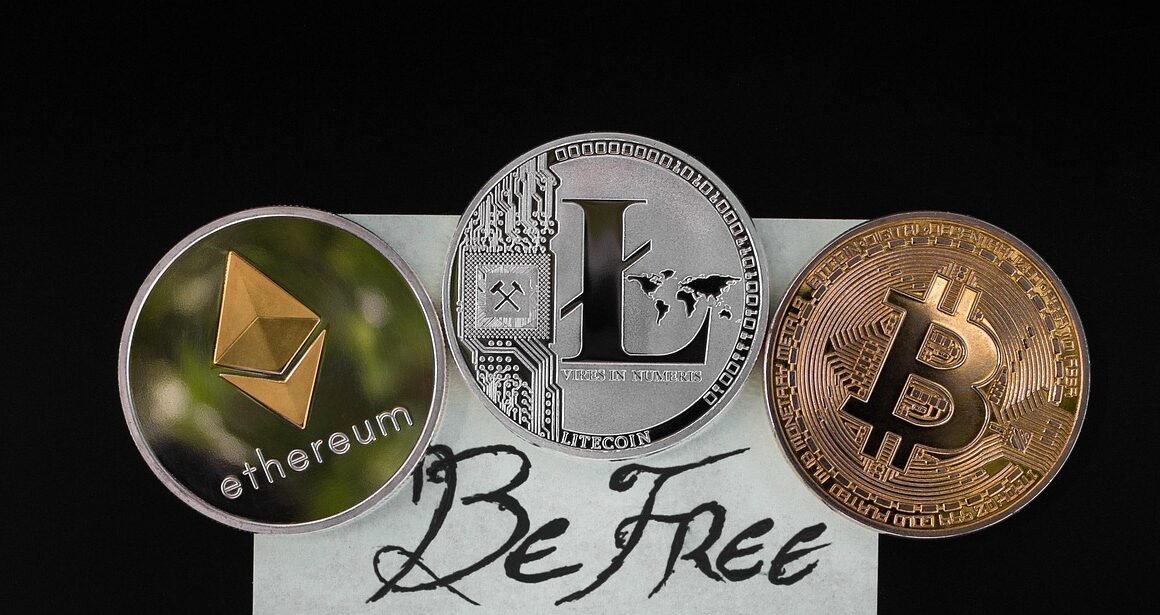The world of cryptocurrency and blockchain is constantly evolving, presenting both exciting opportunities and complex challenges. One of the earliest and most impactful methods for blockchain projects to raise capital was the Initial Coin Offering, or ICO. While ICOs have matured since their initial boom, understanding their mechanics, benefits, and risks remains crucial for anyone involved or interested in the crypto space. This post will provide a detailed overview of ICOs, covering everything from their foundational principles to their current role in the blockchain landscape.
What is an ICO?
Definition and Core Principles
An Initial Coin Offering (ICO) is a fundraising method in which a new cryptocurrency or crypto project sells its tokens to early backers in exchange for established cryptocurrencies like Bitcoin or Ethereum, or even fiat currency. Think of it as a crowdfunding campaign, but instead of receiving a product or service in return, investors receive tokens that may (or may not) appreciate in value or offer utility within the project’s ecosystem.
- Core Principle: Democratized fundraising for blockchain projects.
- Mechanism: Selling tokens in exchange for capital.
- Primary Goal: Funding the development and launch of a project.
How ICOs Differ from IPOs and Other Funding Methods
While ICOs share some similarities with Initial Public Offerings (IPOs), there are significant differences. IPOs involve selling equity in a company, subject to strict regulatory oversight. ICOs, on the other hand, typically offer utility tokens or security tokens, often with less regulatory scrutiny (though this is changing). Compared to venture capital funding, ICOs allow projects to access a broader pool of investors, even those with smaller capital contributions.
- IPOs: Offer equity, highly regulated.
- Venture Capital: Limited to institutional investors, significant due diligence.
- ICOs: Offer tokens, broader access to investors, varying levels of regulation.
- Example: Imagine a startup building a decentralized social media platform. Instead of seeking venture capital, they could launch an ICO to sell tokens that will be used within their platform to reward content creators or access premium features.
Benefits and Advantages of Launching an ICO
Advantages for Blockchain Projects
ICOs provide several compelling benefits for projects seeking funding:
- Access to Global Capital: ICOs can attract investors from around the world, bypassing geographical limitations.
- Faster Funding: Compared to traditional methods, ICOs can provide quicker access to capital.
- Community Building: ICOs can foster a strong community of early adopters and supporters.
- Decentralized Control: ICOs allow projects to maintain a degree of decentralized control.
- Example: Projects struggling to secure funding from traditional venture capitalists due to their innovative (and potentially risky) nature can turn to ICOs to find individuals passionate about their vision.
Advantages for Investors
For investors, ICOs can offer potential high returns, although these come with significant risks:
- Early Access: Invest in projects at their earliest stage.
- Potential for High Returns: If the project is successful, the value of the tokens can increase significantly.
- Participation in Innovation: Support groundbreaking technologies and projects.
- Community Membership: Become part of a thriving community.
- Statistic: In the early days of ICOs, some projects saw token prices increase by hundreds or even thousands of percent within months, attracting significant attention to this fundraising model. (Note: past performance is not indicative of future results and many ICOs have resulted in losses for investors.)
Risks and Challenges Associated with ICOs
Risks for Investors
Investing in ICOs comes with considerable risks:
- Scams and Fraud: The lack of regulation in the past led to numerous scam ICOs that defrauded investors.
- Project Failure: Many blockchain projects fail, leading to a complete loss of investment.
- Volatility: Cryptocurrency markets are highly volatile, and token prices can fluctuate dramatically.
- Lack of Liquidity: Tokens issued by new projects might have limited trading volume and liquidity.
- Practical Tip: Always conduct thorough research (Due Diligence or “DYOR”) before investing in an ICO. Evaluate the team, the project’s whitepaper, and the market opportunity.
Challenges for Projects
Launching an ICO is not without its challenges:
- Regulatory Uncertainty: Regulations surrounding ICOs vary by jurisdiction and are constantly evolving.
- Building Trust: Establishing trust with potential investors is crucial, especially in a space known for scams.
- Market Competition: The market is saturated with ICOs, making it difficult to stand out.
- Delivering on Promises: The pressure to deliver on promised features and functionality can be intense.
- Actionable Takeaway: Projects must prioritize transparency and communication to build trust with their community and navigate regulatory challenges effectively.
The Current State of ICOs and Emerging Alternatives
Evolution and Maturation of the ICO Market
The ICO market has matured significantly since its peak in 2017-2018. Regulatory scrutiny has increased, and investors have become more discerning. While ICOs haven’t disappeared entirely, they’ve evolved, and new fundraising methods have emerged.
- Increased Regulatory Oversight: Securities and Exchange Commissions (SEC) and other regulatory bodies are actively monitoring and regulating ICOs.
- Shift Towards Utility Tokens: Projects are increasingly focused on developing tokens with actual utility within their ecosystems.
- More Stringent Due Diligence: Investors are conducting more thorough research before investing.
Alternative Fundraising Methods: IEOs, STOs, and DAOs
Several alternative fundraising methods have emerged as potential successors to ICOs:
- Initial Exchange Offerings (IEOs): Tokens are sold through a cryptocurrency exchange, which vets the project beforehand. This offers investors an extra layer of security.
- Security Token Offerings (STOs): Tokens are classified as securities and are subject to regulatory requirements, offering investors more legal protection.
- Decentralized Autonomous Organizations (DAOs): DAOs can raise funds through token sales, but operate as decentralized, community-governed entities.
- Example: Binance Launchpad is a platform for IEOs, providing a way for promising crypto projects to gain exposure and raise funds through Binance’s user base.
Legal and Regulatory Considerations
Varying Regulations Across Jurisdictions
Regulations concerning ICOs vary significantly from country to country. Some jurisdictions have embraced ICOs with open arms, while others have imposed strict restrictions or even bans.
- United States: The SEC views many ICO tokens as securities, subjecting them to securities laws.
- Switzerland: Has adopted a more progressive approach, providing regulatory clarity for blockchain projects.
- China: Has banned ICOs entirely.
Importance of Compliance and Legal Advice
Projects considering launching an ICO must seek legal advice to ensure compliance with applicable regulations. Failing to do so can result in significant penalties and legal action.
- Know Your Customer (KYC): Verifying the identity of investors to prevent money laundering and other illegal activities.
- Anti-Money Laundering (AML): Implementing procedures to prevent the use of ICOs for money laundering.
- Securities Laws: Understanding and complying with securities laws in relevant jurisdictions.
- Actionable Takeaway:* Legal compliance is paramount for any project considering an ICO. Engage with experienced legal counsel to navigate the complex regulatory landscape.
Conclusion
ICOs revolutionized the way blockchain projects raise capital, offering both unprecedented opportunities and significant risks. While the ICO market has evolved and new fundraising methods have emerged, understanding the core principles and challenges associated with ICOs remains essential for anyone involved in the cryptocurrency space. By conducting thorough due diligence, prioritizing transparency, and seeking legal advice, both projects and investors can navigate the world of ICOs more effectively and minimize the potential for adverse outcomes.



